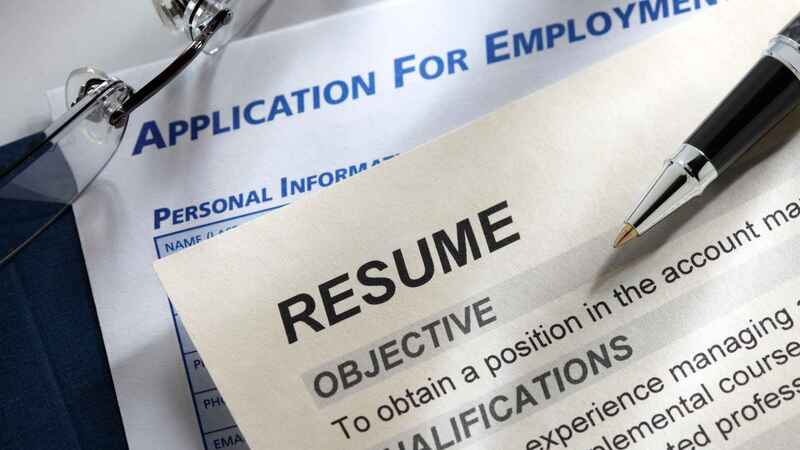13 Common Job Interview Questions and How to Answer Them
Career AdviceJune 01, 2025 10:00

13 Common Job Interview Questions and How to Answer Them
Job interviews can be nerve-wracking, especially if you're unsure what to expect. Whether you're a fresh graduate, a job seeker in Malaysia, or a mid-career professional, understanding common interview questions—and how to answer them effectively—can significantly improve your chances of landing your dream job.
In this guide, we explore the top 13 most frequently asked interview questions in Malaysia and provide tips on how to answer them with confidence. Perfect for anyone preparing for job interviews in Malaysia in 2025!
Why Employers Ask These Interview Questions
Interviewers use standard questions to assess your qualifications, personality, communication style, and cultural fit. Mastering your responses helps you make a strong first impression and stand out among other candidates.
1. Tell me about yourself.
What they ask: A brief summary of your professional background.
How to answer: Highlight your most relevant experience, skills, and goals.
Avoid answer: “I’m 25 years old, I like cooking and watching Netflix.”
Example of answer:
"I’m a finance graduate with two years of experience as an accounts executive, handling monthly reports, audits, and budgeting. I enjoy working with data and am now looking to grow in a role that allows me to deepen my expertise in financial planning."
2. Why do you want to work here?
What they ask: Why you’re interested in this company.
How to answer: Show knowledge of the company’s values, culture, or projects.
Avoid answer: “Because I need a job” or “The salary is high.”
Example of answer:
“I’m impressed by your company’s innovation in digital solutions and your focus on employee development. I’d love to contribute to a forward-thinking team that values both performance and learning.”
3. What are your strengths?
What they ask: Skills that make you a strong candidate.
How to answer: Pick 2–3 relevant strengths with examples.
Avoid answer: “I’m perfect at everything” or vague answers without examples.
Example of answer:
“One of my key strengths is adaptability. In my previous role, I quickly adjusted to a new CRM system and trained others within a week. I’m also highly detail-oriented, especially when managing data or reports.”
4. What is your biggest weakness?
What they ask: A test of self-awareness and growth mindset.
How to answer: Share a real weakness and how you’re improving it.
Avoid answer: “I work too hard” or “I don’t have any weaknesses.”
Example of answer:
“I used to struggle with public speaking, but I’ve joined internal training sessions and volunteered for team presentations to build confidence.”
5. Why did you leave your last job?
What they ask: Understand your career changes.
How to answer: Be honest, focus on growth and learning.
Avoid answer: Speaking negatively about your manager or team.
Example of answer:
“I’m grateful for my previous role, but I’m looking for more challenging opportunities in a company that supports long-term career development.”
6. What are your salary expectations?
What they ask: If your expectations align with their budget.
How to answer: Provide a fair salary range based on research.
Avoid answer: “Whatever you can give” or asking for a very high figure without justification.
Example of answer:
“Based on my skills and market data, I believe a range between RM3,000 to RM3,500 would be fair for this position.”
7. Describe a challenge you faced and how you handled it.
What they ask: Your problem-solving ability.
How to answer: Use the STAR method (Situation, Task, Action, Result).
Avoid answer: Stories with no clear outcome or blaming others.
Example of answer:
“In my previous role, our system crashed before a product launch (Situation). I coordinated with the IT team (Action) and we resolved the issue in 2 hours, ensuring the launch went smoothly (Result).”
8. What motivates you?
What they ask: Understand what drives your performance.
How to answer: Focus on meaningful motivators like growth, achievement, or purpose.
Avoid answer: “Money only” or “I don’t know.”
Example of answer:
“I’m motivated by continuous learning and seeing how my work impacts the company. I enjoy setting goals and exceeding them.”
9. Where do you see yourself in 5 years?
What they ask: Your career vision and goal alignment.
How to answer: Show ambition that fits the company’s path.
Avoid answer: “I want to be in another company” or “I haven’t thought about it.”
Example of answer:
“In five years, I hope to have advanced into a senior marketing role, mentoring others and leading larger campaigns.”
10. How do you handle stress or pressure?
What they ask: Your emotional resilience.
How to answer: Share practical coping methods and examples.
Avoid answer: “I don’t get stressed” or “I panic.”
Example of answer:
“I prioritize tasks and take short breaks to stay focused. During peak periods, I also communicate with my team to ensure smooth coordination.”
11. Why should we hire you?
What they ask: Your unique value proposition.
How to answer: Summarize your fit for the role and enthusiasm.
Avoid answer: “Because I need a job” or repeating your resume word for word.
Example of answer:
“With my proven track record in customer service and strong communication skills, I’m confident I can contribute to your team’s success from day one.”
12. Are you applying for other jobs?
What they ask: Gauge your job search progress.
How to answer: Be honest, but emphasize your interest in this role.
Avoid answer: “Yes, I’ve applied everywhere” or “I don’t want to tell you.”
Example of answer:
“Yes, I’ve applied to a few companies, but your role stands out because of the growth potential and culture.”
13. Do you have any questions for us?
What they ask: If you’re genuinely interested in the company.
How to answer: Ask thoughtful, role-specific questions.
Avoid answer: “No questions” or asking about salary right away.
Example of answer:
“Yes, could you share more about the team I’d be working with and how success is measured in this role?”
Final Tips for Interview Success in Malaysia
-
Research the company and role thoroughly
-
Practice answering questions aloud
-
Dress professionally (even for virtual interviews)
-
Arrive early and bring your updated resume/CV in Malaysian format
-
Follow up with a thank-you email after the interview







